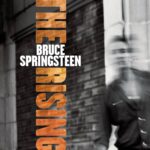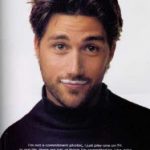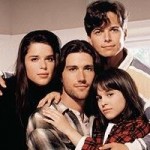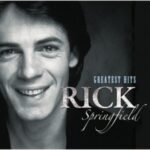 By Jae-Ha Kim
By Jae-Ha Kim
Chicago Sun-Times
October 14, 1996
At most rock concerts at the Rosemont Horizon, the poor suckers stuck in the back rows have to make do with catching glimpses of the performers on the huge video monitors. Not at Melissa Etheridge’s show Saturday night.
An hour after her 8:20 start, the singer briefly disappeared, only to reappear on a makeshift stage at the back of the stadium, where she played for the next 50 minutes.
Etheridge’s willingness to please an audience is one of the reasons her shows are such fun to attend. Even in an enormodome such as the Horizon, Etheridge managed to create an intimate feeling that was reflected in her homey stage set-up, which included a couple of dressmakers’ mannequins dressed in white (they later were sheathed in charred black).
The singer enjoyed a warm connection with her fans, though her long, meandering tales of growing up in Leavenworth, Kan., took focus away from her music.
Etheridge has such a wealth of material that she can afford to throw in some of her best songs right at the beginning. “I Want to Come Over” – a longing ode to a lover who already is involved with someone else – turned into a singalong with the audience gamely trying to keep up with her. But even with all those off-key voices, the seductive power of Etheridge’s vocals came through.
The same could be said about her anthemic “Come to My Window,” which TV fans recognize as one of the themes used on Fox’s “Party of Five.” Etheridge set the song up with her quiet but forthright verses, before kicking into a rousing chorus that made her intentions wickedly clear.
Her 2 1/2-hour show went by quickly as she played gems that ranged from her 1988 debut “Melissa Etheridge” to her current release “Your Little Secret.” Of course Etheridge came out about her little secret three years ago.
Watching her writhe around the floor cradling her guitar as an imaginary lover, it was difficult to remember the times when Etheridge used to be coy about her sexuality. She may have come out as a lesbian, but her songs remain sexually ambiguous.
The objects of desire in her songs are “you,” leaving listeners to fill in their own blanks, while her songs about love and lust, pain and forgiveness are universal in theme.
Etheridge may be most often compared to Janis Joplin, whom she will portray in a film next year, but she actually has more in common with rockers such as Bruce Springsteen, John Mellencamp and Bob Seger. Like them, she has a knack for creating small-town vignettes with vivid lyrical imagery.
Yet Etheridge has a strong, honest alto that is passionate and pleading. And in numbers like “Bring Me Some Water,” she has a way of phrasing lyrics with that hoarse voice of hers that shows (like Joplin) that she’s learned a thing or two from listening to the blues.





